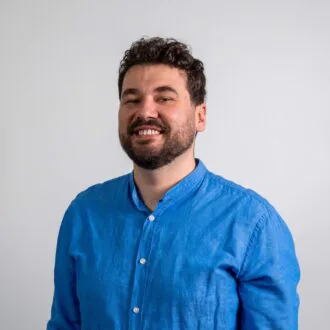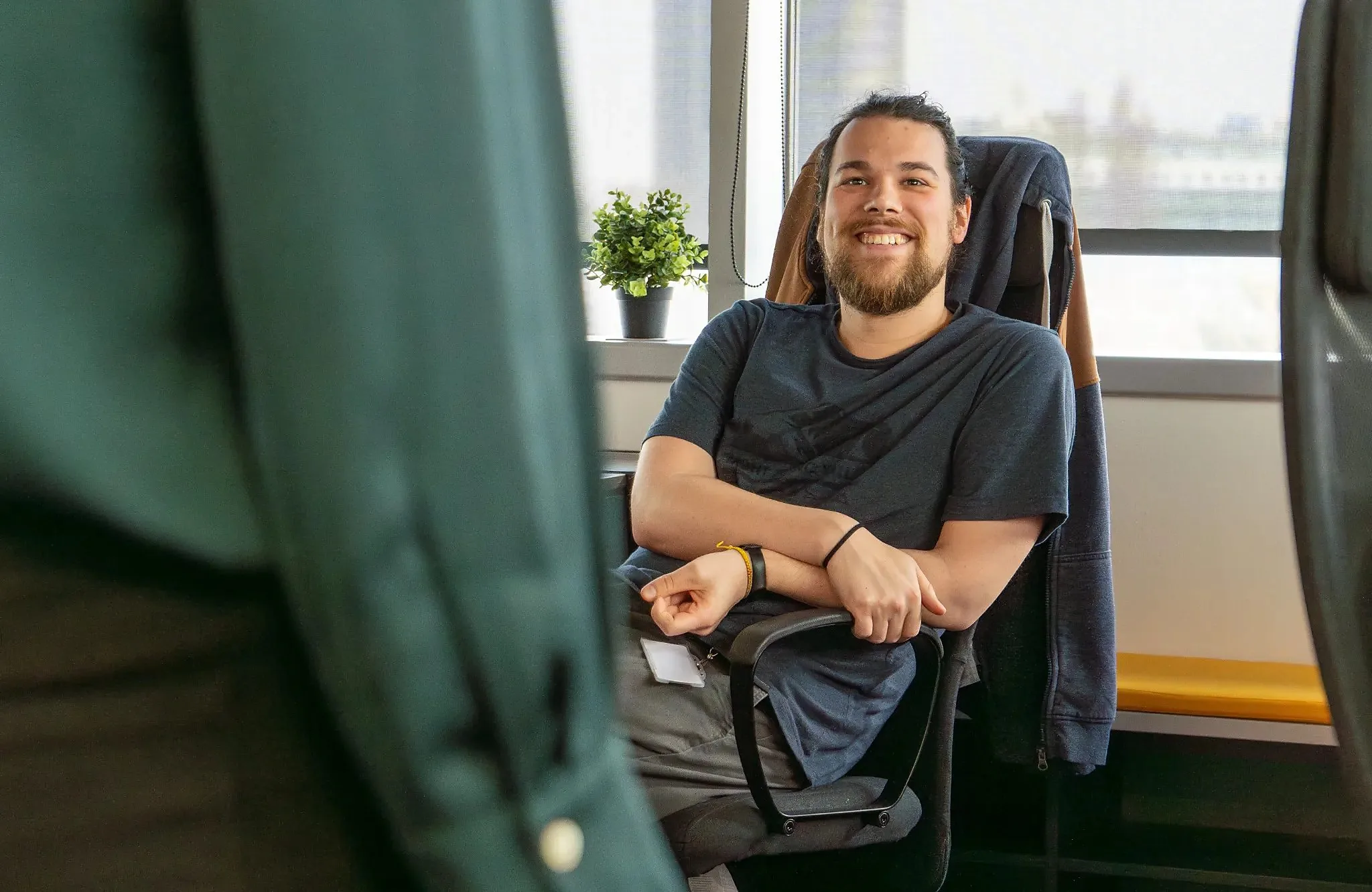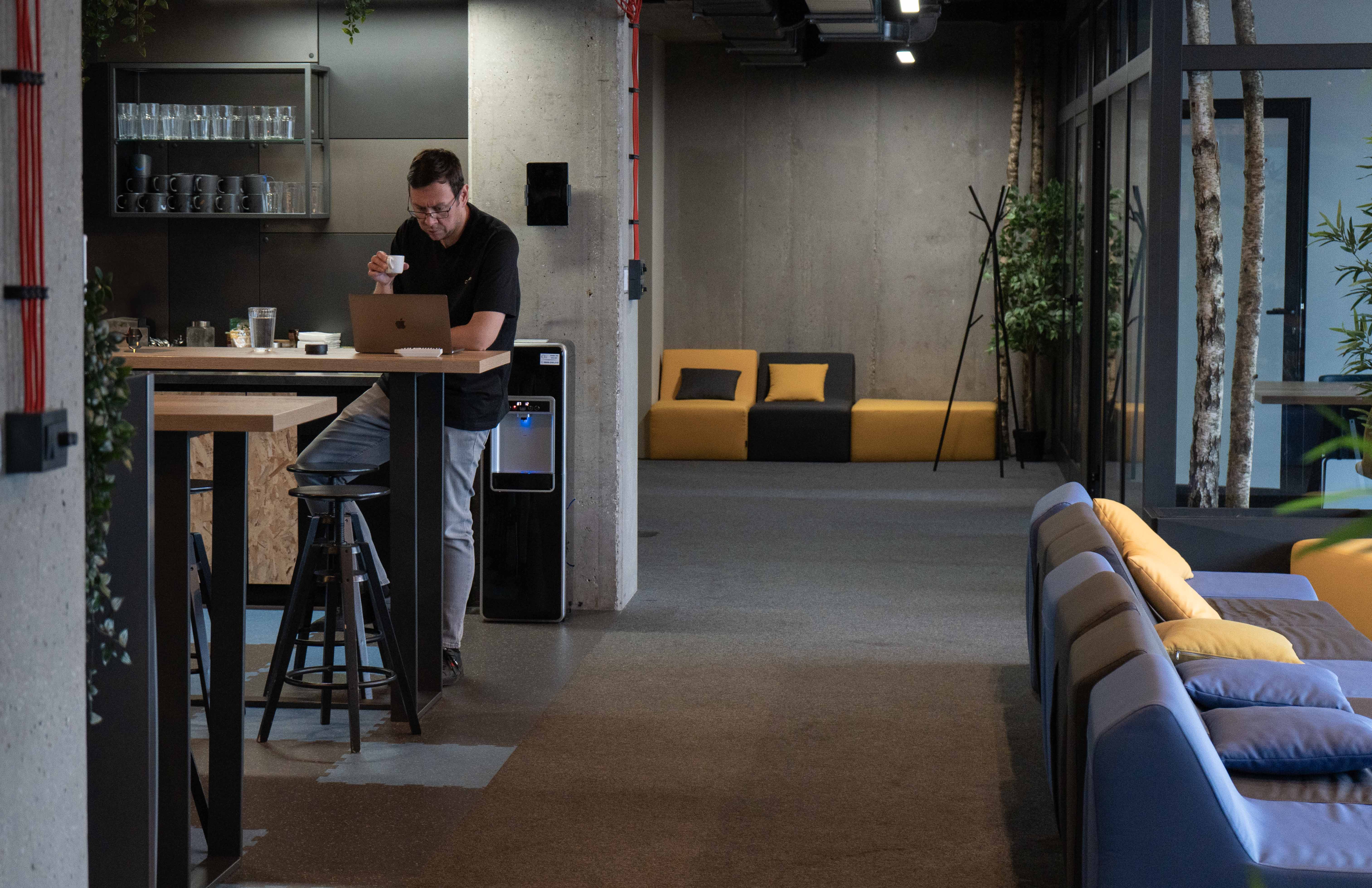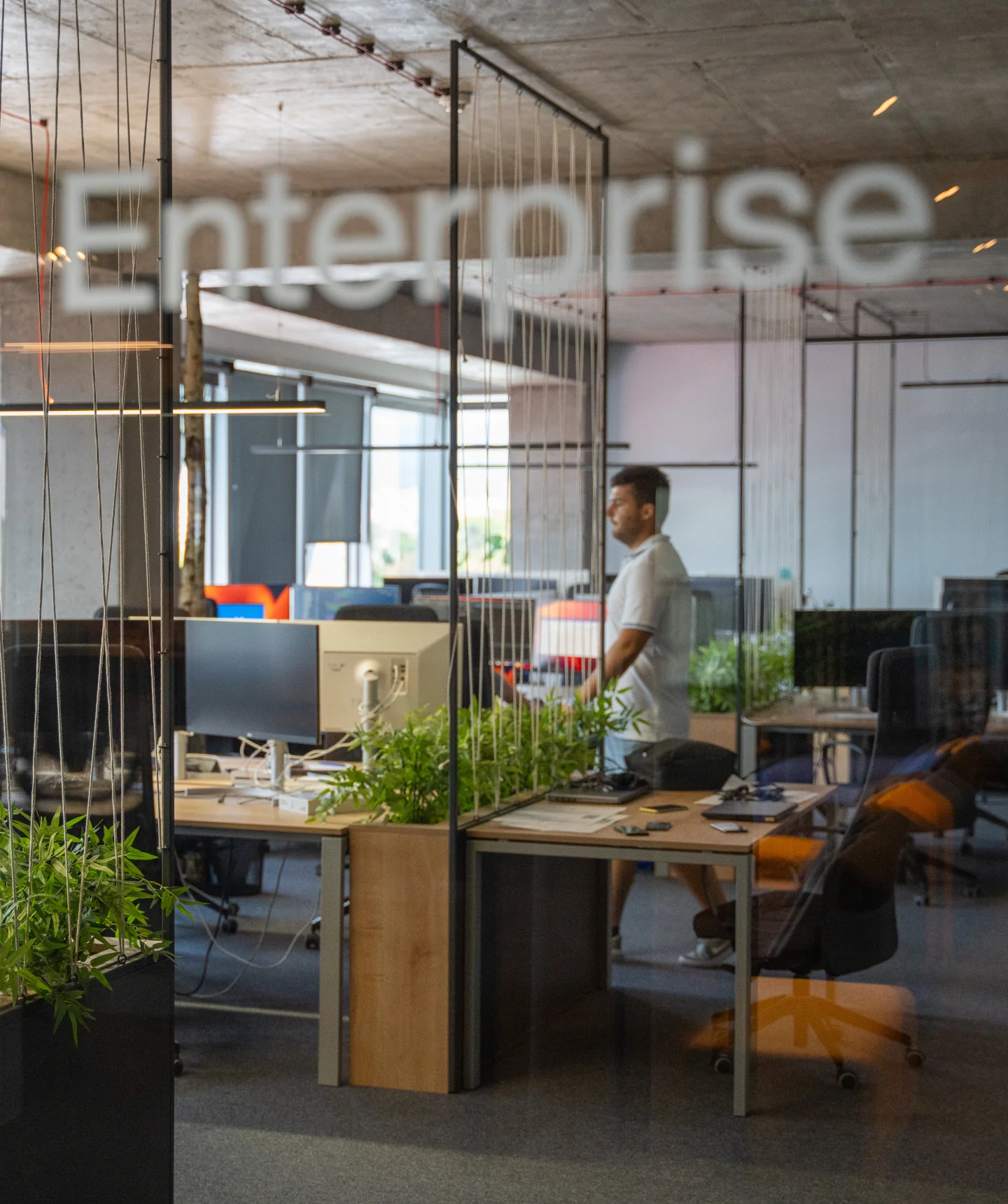Hiring the right people is one of the hardest parts of building software.
Get it wrong, and projects slow down. A single bad hire can completely derail a project, and the cost of a bad hire is always higher than it looks on paper.
That’s why we’ve built a process that carefully and consistently filters candidates.
It helps us find not just strong engineers, but the kind of people who thrive in an agency and deliver real value to our clients.
In this article, we’ll take you inside that process.
You’ll see the numbers, every step from CV screening to onboarding, and why only a small fraction of candidates become DECODErs.
Let’s dive in!
Key takeaways:
- Our hiring process is highly selective. Out of 1,296 applicants this year, only 20 became DECODErs.
- We look beyond technical skills. Adaptability, professionalism, and cultural fit are just as important as strong fundamentals.
- Clients see impact right away. New hires are tested in real projects and start contributing quickly.
Our hiring process in numbers: why it brings in the right people
We take hiring seriously. Every step is there for a reason. And the numbers show why it works.
You’ve heard of companies doing 4 or 5 rounds of interviews. We don’t do that. We think 2 rounds is more than enough.
This helps us quickly hire engineers without sacrificing quality if we need to scale fast. It also helps us secure top talent before other companies beat us to the punch.
So far this year, we’ve had 1,296 applications for 14 open positions. Out of those, 257 people made it to the first interview. 78 went on to the second.
In the end, we hired 20 people. That means about 1.5% of candidates become DECODErs.
Or, put differently, we hire 1 person for every 65 applications. That’s a small number, sure. But that’s exactly the point.
We want to make sure the people we bring in are the right fit for us and for our clients.
100+ projects delivered. We’re ready for yours. Let’s talk →
You’ll be talking with our technology experts.
Here’s the kicker: by mid-August 2025, we’d already passed the total number of applications, interviews, and hires from all of 2024. And our bar hasn’t dropped.
This tells us 2 things. First, more people want to join DECODE.
Second, our process is consistent enough to scale without lowering standards.
That’s how we know we’re bringing in the right people – the kind of engineers our clients rely on.
How our hiring process works
Next, we’ll guide you through every step of our hiring process, from start to finish.
CV screening
CV screening is our first filter. It helps us decide who should move on to interviews.
We look for quality over quantity.
A strong CV shows solid experience in good companies, a relevant technical background, and stability – not someone who switches jobs every few months.
Agency experience is a big plus. Working in an agency means you’ve had to be adaptable, collaborative, and ready for shifting priorities.
That’s exactly the kind of mindset our projects demand.
We also value teamwork. Great seniors mentor, document, and hand work over properly. That’s hard to learn if you’ve only ever worked alone.
I don’t like hiring seniors who have never worked in a team. Too often they’re used to being one-man bands. They might deliver well on their own, but they struggle when it comes to documenting, handing over work, or mentoring others. Those are things you should be able to count on from a senior.
A technical degree is a nice bonus, but what really matters are strong fundamentals and experience.
For junior roles, with 200–300 applications per opening, a candidate’s degree and code samples on GitHub or Bitbucket can tip the scale.
There’s a Croatian phrase our CDO likes to use: paper can endure anything. In other words, a CV never tells the whole story.
We’ve seen candidates with impressive CVs disappoint in interviews. And we’ve seen modest CVs hide excellent engineers.
That’s why CV screening is just the first step. The real test comes once we talk to candidates.
First interview
The first interview is all about fit. Cultural and technical.
We want to see if someone can thrive here, not just code well. Adaptability, openness, and cooperativeness matter just as much as technical skills.
Here’s what we look for:
- Adaptability and flexibility
- Cooperativeness and open communication
- A healthy attitude toward feedback
- Genuine motivation and passion for the work
- A mature perspective on work and life
We look for professionalism. Our developers work directly with clients, so they need to represent DECODE well.
Someone might be technically brilliant, but if they can’t communicate clearly and respectfully, they won’t move forward in the hiring process.
Being a good fit at DECODE isn’t about being extroverted. We value approachability, flexibility, and cooperativeness. Some of our best people are introverts, but they’re easy to work with and adapt quickly. That’s what matters.
We also want to see genuine motivation. We don’t want rehearsed answers, but candidates who love what they do and are excited about software development.
At the same time, we check their technical fundamentals.
A candidate can be a perfect cultural fit, but without the right baseline of knowledge, they can’t move forward. The CV might say one thing, but the interview shows us what’s real.
Crucially, the first interview is also a two-way street. We explain who we are, how we work, and what candidates can expect if they join.
They get a chance to ask about the company, the team, and the role. Transparency is our number one priority.
Second interview
The second interview goes deeper.
Our CDO usually runs this round.
We test candidates on computer science fundamentals, like data structures, algorithms, and complexity.
We also ask situational questions. We want to see how someone would handle real-world challenges:
- Solving problems under constraints
- Handling conflicts inside a team
- Owning up when mistakes happen
- Dealing with tricky client situations
Adaptability is the key trait we’re looking for.
As an agency, our projects shift and technologies change. We need people who can switch gears and still deliver high quality work.
The second interview helps us see if a candidate can solve problems in context and adjust to different client needs.
This isn’t about trick questions or making candidates sweat. The atmosphere is open. The goal is to understand how someone thinks, communicates, and solves problems.
Many of our new hires told me they really liked our selection process. They said the technical questions checked real knowledge and how they think. They also felt the two-round process made sense and that the atmosphere was warm and welcoming, more like a conversation than an exam.
Ana Kovacevic, Talent & Culture Specialist at DECODE
Curiosity is something we check for too.
If someone couldn’t answer a question in the first interview, we’ll ask it again. Did they go back, research, and learn? Or did they just leave it? That tells us a lot about their drive.
Another key point: the second interview builds on the first. Interviewers get notes from the first round, so we don’t repeat questions.
So, if we covered fundamentals in the first interview, we focus on frameworks or practical problem-solving in the second, and vice versa.
Candidates often tell us they enjoy this round. They say it feels like a real conversation, which is the point. We want to see the best in people, not catch them out.
Making an offer
By the time we’re ready to make an offer, a candidate has passed every filter. The decision isn’t made lightly.
Everyone who interviewed the candidate, from both rounds, meets to discuss.
Our CDO might step in with a final call if it ties directly to business needs or project demands, but usually each person has an equal say.
We share impressions, red flags, and gut feelings. An offer only goes out when a candidate clears our non-negotiables:
- Strong technical fundamentals
- A good cultural fit
- Openness to learning and adaptability
Even a brilliant engineer won’t get an offer if they don’t fit our culture. Toxic behavior, arrogance, or dismissing new ideas are automatic dealbreakers.
One toxic person can drag down at least 4 others on a team. That’s why I take red flags seriously. A big one is when someone talks badly about a past company or colleagues without context. It’s fine to explain specific situations that didn’t work out. But constant negativity for its own sake shows they have the wrong mindset.
Ante Baus, Chief Delivery Officer at DECODE
Business context plays a role too. Sometimes we’re hiring for specific projects. Other times we’re building for long-term growth.
Either way, we’d rather miss out on a good candidate than hire the wrong one.
And yes, gut feeling counts. We’ve regretted ignoring it before. That’s why we carefully balance facts and instincts.
The result is simple: only the candidates we truly believe will thrive here get an offer.
Onboarding and post-hire evaluation
Hiring doesn’t end with a signed contract. The real test starts once someone joins.
Every new hire goes through a probation period. During this time, we look at:
- How quickly they adapt to projects
- How they collaborate with teammates
- How they handle feedback and expectations
- How they contribute to clients from day one
We’re very transparent about what we expect. Flexibility, curiosity, and openness to learning are non-negotiable.
If someone agreed to this during interviews but doesn’t show it on the job, we address it right away.
The good news? The vast majority of new DECODErs complete their probation period. It’s been a really long time since someone hasn’t.
That’s because our hiring process is selective and only a small number of applicants make it through.
And our culture plays a big role. We welcome new people fast, support them as a team, and clients often notice how quickly they ramp up.
The best compliment I have heard from a client is when they told me that if a bug happens in production, they hope it is on DECODE’s side. They know it will get fixed.
Ante Baus, Chief Delivery Officer at DECODE
Like we mentioned earlier, we know the cost of a bad hire is high.
That’s why we’d rather miss out on someone than keep the wrong person. Probation gives us one final safety net.
When someone passes it, we know they’re not just a good developer. They’re the right fit for DECODE and for our clients.
DECODE hiring process: FAQs
No, but we always keep their needs in mind.
Our Chief Delivery Officer plays a key role here. They evaluate not just technical skills, but whether a candidate can adapt to upcoming projects and client demands. It’s how we make sure new hires fit both DECODE and the teams they’ll join.
We hire for strong fundamentals, not just expertise in a particular tool.
That means our developers can pick up new technologies fast when projects require it. This adaptability is crucial in an agency setting.
We rely on a stable pool of experienced interviewers.
Senior engineers, team leads, and our CDO are deeply involved in every hiring decision.
They know what it takes to succeed with clients and keep the bar high. Even as the number of applications grow, the people making the calls stay the same, so quality never drops.
Looking for a high-caliber development team?
That’s exactly what our hiring process is built to deliver.
We don’t compromise on who we bring in, because every hire ends up on a client project.
The people who join DECODE are not only strong engineers, but also professionals who adapt quickly, communicate clearly, and know how to work in teams.
For you, that means less downtime, smoother collaboration, and projects that move forward with confidence.
So, if you’re looking for a partner you can trust to deliver top talent every time, let’s talk.




